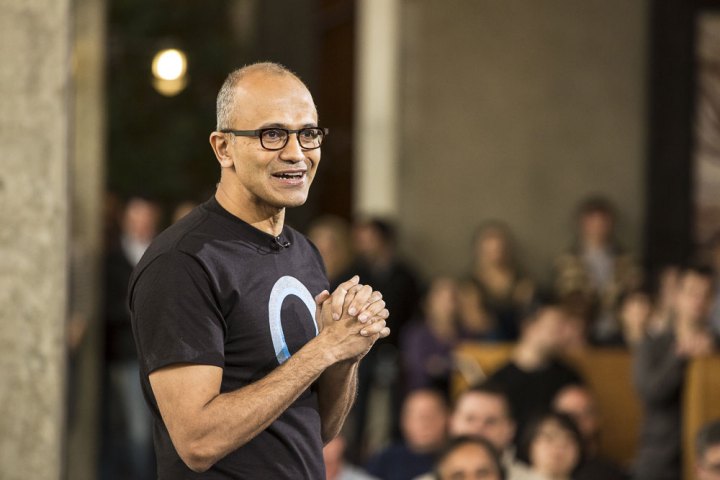
But interest in and expansion of AI are increasing, along with concerns about its implications. In a recent essay published on Slate, Microsoft CEO Satya Nadella lays out his framework of responsibilities of AI for machines and for human, summarized as “Nadella’s 10 Laws of AI” by Geekwire.
Nadella cited Isaac Asimov’s Three Rules of Robotics from the 1940s: “First, robots should never harm a human being through action or inaction. Second, they must obey human orders. Third, they must protect themselves.” Those rules work for fiction but are perhaps too crude for moral decisions and more complex responsibilities.
The Microsoft CEO also quoted computer pioneer Alan Kay who said, “The best way to predict the future is to invent it.” Nadella’s translation for our current position is, “Stop predicting what the future will be like and create it in a principled way.”
Nadella’s 10 Laws of AI are actually principles and goals, which he says call for discussion and debate as we step boldly into a society that increasingly uses and depends upon artificial intelligence. There are six principles relating to AI itself:
“AI must be designed to assist humanity.” It should not take over or exist for its own sake.
“AI must be transparent.” Humans should be aware of AI rules.
“AI must maximize efficiencies without destroying the dignity of people.” All populations must be involved in design and rules for AI, to avoid undue influence. Melinda Gates expressed a similar sentiment recently, when she criticized the gender imbalance among programmers, described by another observer as a “sea of dudes.”
“AI must be designed for intelligent privacy.” Personal privacy and information need to be protected.
“AI must have algorithmic accountability so that humans can undo unintended harm.” We can’t predict everything that might happen with systems, so there need to be ways to reset or reprogram based on the unforeseen.
“AI must guard against bias, by ensuring proper, and representative research so that the wrong heuristics cannot be used to discriminate.” Human oversight is necessary to be sure AI is following this rule.
Nadella also listed four principles, or “musts” for humans, stressing skills children and workers in the future will need as well as capabilities artificial intelligence as known today cannot replicate to the same degree and quality as humans can. Those requirements are empathy, education, creativity, and judgment and accountability.
As the Microsoft CEO, Nadella will be part of the conversation going forward about artificial intelligence. With his 10 Laws of AI he invites us all to join the conversation as well.
Editors' Recommendations
- YouTube tells creators to start labeling ‘realistic’ AI content
- This AI algorithm could save lives in quake zones
- Hollywood writers strike ends after agreement on AI and other issues
- Coca-Cola apparently used AI to create a soda ‘from the future’
- I hope Microsoft adds this rumored AI feature to Windows 11




